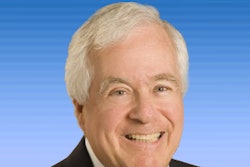Many dental practice expert evaluators pride themselves on their expertise in preparing and accurately portraying the worth of a dental practice. The presentation of their report will probably be satisfactory and comprehensive based on the information they were supplied by the dentist's attorneys or the dentist directly. In their valuation report, there is almost always a reference to goodwill and its value.
Unfortunately for many dental practice evaluators, their assessment of goodwill, its attributes, and the values assigned to it are not comprehensive enough to justify the allocation between personal goodwill and enterprise goodwill. This analysis of goodwill sets the stage for a precise critique and challenge to the valuation, as the goodwill in total and its allocation to personal or enterprise goodwill is one of the most critical items -- and flaws -- in the valuation.
 Bruce Bryen, CPA, CVA.
Bruce Bryen, CPA, CVA.
It is the critique and analysis of the evaluator's report that can help set the tone for the court's final opinion in deciding the practice's value. This analysis and critique presents the flaws and potential arguments raised by the opposing party. Those points can assist the courts or mediators in offering a rebuttal to the dental practice valuation.
This is especially true in a state where equitable distribution guidelines are to be followed by the court. The allocation and value assigned to goodwill for the dental profession is probably the most important and valuable of the assets that the dentist may possess from the practice over its years of existence.
What are the most common flaws in a practice valuation?
Forty states follow the guidelines of equitable distribution. The remaining states have their own guidelines that must be followed. Those states are not required to adhere to certain guidelines, such as defending personal versus enterprise goodwill.
Goodwill and its allocation between personal and enterprise values do not have the same significance in these states as they do in an equitable distribution state. With a completed dental practice valuation and a mere cursory attempt to quantify the attributes of goodwill, it can severely hamper a court's understanding. Nearly 100% of judges are former attorneys who practiced law in either a private or government setting. In their career as a lawyer, they probably had very few cases involving the dental profession.
Dentists seem to be the last bastion of professionals to be sued. Patients rarely sue a dentist unless they have been harmed physically. Associate dentists may sue over employment agreements, alleged promises of partnership ownership acquisition, or promised increases in compensation.
Since there is less litigation in the dental world compared to professionals in other industries, like architects, lawyers, accountants, engineers, and other professionals, judges likely have not had much experience in matters involving the dental profession. They need help understanding a dental practice valuation.
When a valuation critique is presented to them, it allows for an enhanced understanding of the issues that matter the most in the case being presented before them. It gives them expanded knowledge of what is being presented as to the dental practice's value, its allocation of personal and enterprise goodwill, and -- most importantly -- the distribution of practice assets to be awarded to the litigants that include the clinician's personal goodwill. The enterprise goodwill is subject to marital distribution.
Understanding what's defined as goodwill and how it was reported in the valuation
A qualified dental practice evaluator may value a practice with a standard of value being the fair market value. The determination of value in a hypothetical situation may be $1 million. The hypothetical allocation of a $1 million value may be that equipment reflects a value of $100,000. Dental supplies and instruments may be valued at $200,000. The final allocation of the practice's value would then be $700,000 of goodwill for a total value of $1 million.
This description of goodwill is insufficient in an equitable distribution state to determine the distribution of the practice's assets to the litigants. Since the figure attributed to personal goodwill rarely involves being available for marital consideration, the higher the value assigned to personal goodwill, the better it is for the dentist.
Conversely, the higher the value attributed to enterprise goodwill, the happier the spouse of the dentist will be. Enterprise goodwill is rarely assigned to anything except for it being an asset subject to marital distribution. The larger the amount assigned to enterprise goodwill, the worse it is for the dentist. Unless there is some type of description of the attributes of goodwill, a court uses its own knowledge and discretion in awarding the distribution of the dental practice assets -- especially goodwill -- to the parties.
If the dental practice evaluator does not offer a complete description of which attributes of goodwill are personal and which attributes are enterprise, the critique will certainly offer the judge insights into the clinician's allocation of value and whether the attribute of goodwill should be personal, enterprise, or shared in some proportion.
Will the dentist be proactive or defensive in opposing an unsatisfactory valuation?
A dentist can hope that the judge's opinion will be in his or her favor. He or she can retain someone who can critique and analyze the valuation and offer a more comprehensive assessment of a practice's value and assist the judge in making a more informed decision.
Bruce Bryen is a certified public accountant with over 45 years of experience. He specializes in providing litigation support services to dentists, with valuation and expert witness testimony in matrimonial and partnership dispute cases. Bryen assists dentists with financial decisions about their practice, practice sales, evaluating whether to join a DSO, practice evaluation during divorce proceedings, and questions about the future or financial health of dental practices. He can be reached at [email protected].
The comments and observations expressed herein do not necessarily reflect the opinions of DrBicuspid.com, nor should they be construed as an endorsement or admonishment of any particular idea, vendor, or organization.



















